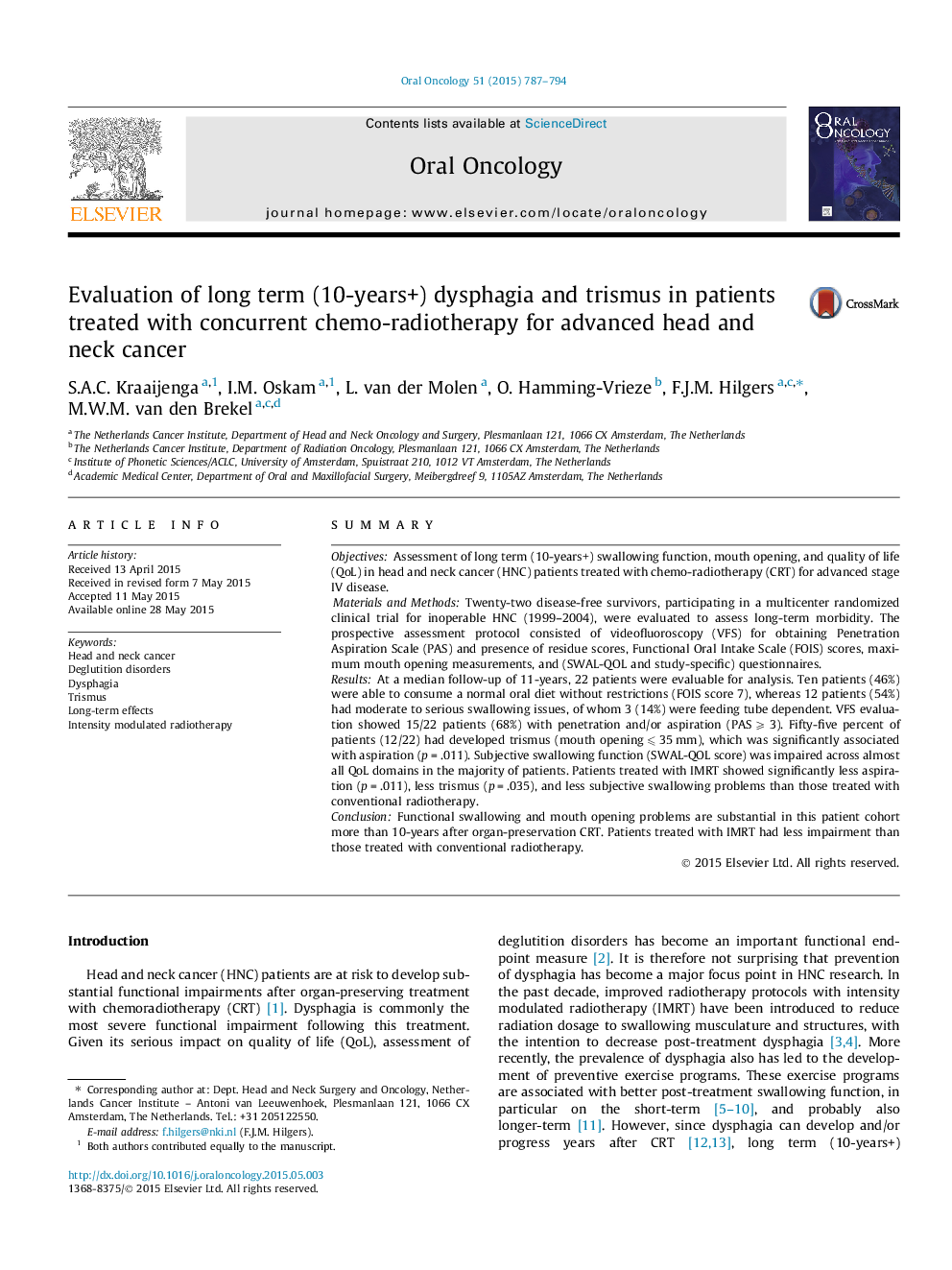| کد مقاله | کد نشریه | سال انتشار | مقاله انگلیسی | نسخه تمام متن |
|---|---|---|---|---|
| 3163985 | 1198760 | 2015 | 8 صفحه PDF | دانلود رایگان |
• Long-term dysphagia after CRT for advanced HNC forms a substantial QoL problem.
• There is a significant correlation between trismus and laryngeal aspiration.
• IMRT results in less swallowing impairment and trismus than conventional RT.
SummaryObjectivesAssessment of long term (10-years+) swallowing function, mouth opening, and quality of life (QoL) in head and neck cancer (HNC) patients treated with chemo-radiotherapy (CRT) for advanced stage IV disease.Materials and MethodsTwenty-two disease-free survivors, participating in a multicenter randomized clinical trial for inoperable HNC (1999–2004), were evaluated to assess long-term morbidity. The prospective assessment protocol consisted of videofluoroscopy (VFS) for obtaining Penetration Aspiration Scale (PAS) and presence of residue scores, Functional Oral Intake Scale (FOIS) scores, maximum mouth opening measurements, and (SWAL-QOL and study-specific) questionnaires.ResultsAt a median follow-up of 11-years, 22 patients were evaluable for analysis. Ten patients (46%) were able to consume a normal oral diet without restrictions (FOIS score 7), whereas 12 patients (54%) had moderate to serious swallowing issues, of whom 3 (14%) were feeding tube dependent. VFS evaluation showed 15/22 patients (68%) with penetration and/or aspiration (PAS ⩾ 3). Fifty-five percent of patients (12/22) had developed trismus (mouth opening ⩽ 35 mm), which was significantly associated with aspiration (p = .011). Subjective swallowing function (SWAL-QOL score) was impaired across almost all QoL domains in the majority of patients. Patients treated with IMRT showed significantly less aspiration (p = .011), less trismus (p = .035), and less subjective swallowing problems than those treated with conventional radiotherapy.ConclusionFunctional swallowing and mouth opening problems are substantial in this patient cohort more than 10-years after organ-preservation CRT. Patients treated with IMRT had less impairment than those treated with conventional radiotherapy.
Journal: Oral Oncology - Volume 51, Issue 8, August 2015, Pages 787–794
